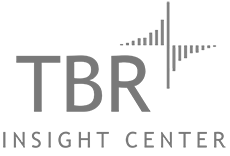The impending Digital Dust Bowl: Mitigation, survival and interdependence
Acts of nature helped create the Dust Bowl; AI-enabled acts of man will stir up the Digital Dust Bowl
Myriad developments such as inexperience with newly automated methods of farming, topsoil shifts, and periods of drought and high winds triggered the Dust Bowl of the 1930s, which exacerbated the ongoing decline of the U.S. economy. Today, the high affordability and rapidly spreading use of analytics and machine learning software reduce the amount of labor necessary to perform complex tasks. In short, we are farming our labor pool in different ways and destabilizing our labor markets in a manner similar to the way automated machinery destabilized our topsoil and helped trigger the Dust Bowl, a calamity with far-reaching economic consequences that compounded the troubles of a country suffering through the Great Depression, cemented in history in the John Steinbeck classic “The Grapes of Wrath.”
We are, in essence, creating a Digital Dust Bowl of displaced manufacturing, clerical and middle-management workers whose jobs will be replaced by automated machines and different methods of establishing trust in a wide range of economic transactions. Technology executives and strategists comprehend this better than most other business and political leaders as we have lived in this world for decades. Ways to mitigate the disruptive economic and social impacts to these accelerations have yet to gain broad-based consensus within the policy making institutions as evidenced by the current political climate at the national level. It is this lack of consensus that hinders our ability to mitigate the impending economic impacts of the accelerating rate of technological innovation.
Major economic shifts pressure the interdependencies between citizens, businesses and governments
Figure 1 outlines the main intersecting domains of people (laborers and consumers), businesses, and government and trust institutions tasked with regulating and certifying the activity between individuals and businesses as well as with “protecting the commons.”


Leave a Reply
Want to join the discussion?Feel free to contribute!